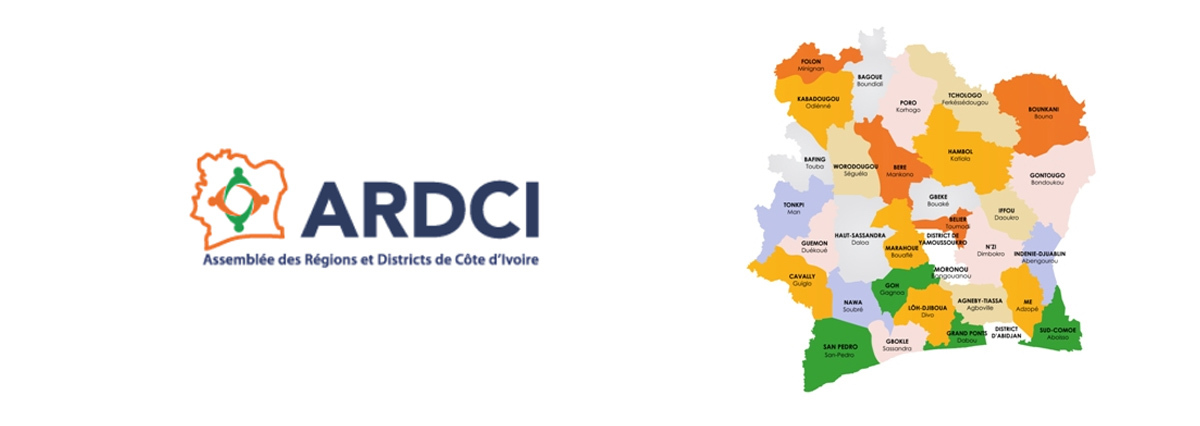Decentralisation and regionalism in Ivory Coast

The goal of any local development policy should be, in our opinion, the search for the citizens’ well-being by means of the qualitative transformation of their living standards and living environment. Thus, local development should be a collective project, the common will of all local stakeholders in a specific territory to change the situation in which they live, to change things to bring about a progressive improvement of their life standards and conditions.
The issue of local development leads to a good definition of “local” environment.
The Organisation for Economic Development and Cooperation (OECD) within the framework of its ILE Program (Local Initiatives for Employment Creation), defines « local » as a space with its own identity, dynamics and specificities that maintain relations of interdependence with the wider spaces in which it integrates.
In this sense, local means any subnational space managed by governmental authorities according to their development vision and the objectives pursued. Then question inevitably arises of how we can determine which one is the best level in the local space. The territorial framework of choice is the Commune, the basic territorial authority, although there are other intermediate levels like the departments, districts, cities or regions.
In Ivory Coast, these levels have been successively created, although the new act n° 2014-451 of 5th August 2014 on the overall organisation of the Territorial Administration has only left the commune and the region, after eliminating the departments and the cities as territorial authority.
As regards to regionalism, the allocation of powers to the regions is made within the institutional framework through various means like territorial decentralisation, devolution and delegation.
Decentralisation is usually defined as political/administrative management system by which the State grants to a human collective or to a set of services having legal personality the right to manage themselves under the State’s control. Under these premises, the legal personality can help achieve local development if it is well-managed by local stakeholders.
In Ivory Coast, the creation of regions arouse from Act n°95-892 of 27th October 1995 on the organisation of the Territorial Administration, which recognised regions as a territorial authority and left the determination of the organisation and functioning rules of this decentralised body to a subsequent law.
This law came about in 1998. It is Act n°98-485 of 4th September 1998 on the organisation of regions, which come together with Act n°98-486 of the 4th September on regional electoral legislation. But in spite of the will shown by the public authorities, regions as territorial bodies were not created until the issuance of the Decree n°2013-294 of May 2nd, 2013 on the classification of thirty one administrative districts as territorial bodies.
Côte d’Ivoire’s legislation gives no clear definition of regions, it simply presents it, under the terms of article 38 of the Act of August 5, 2014, as a territorial body composed of at least two (2) Departments.
Just like all other territorial bodies created or to be created, regions have as their main objective (i) the organisation of community life within the territorial body; (ii) the participation of citizens in the management of local affairs; (iii) the promotion and achievement of local development; (iv) the modernisation of the rural world; (v) the improvement of the living environment; (vi) and the management of the territories and the environment.
Act n° 2003-208 of July 7, 2003 on the transfer and allocation of State powers to the territorial bodies, which defines sixteen groups of powers, assigns the implementation and maintenance of structural investments, such us Universities, CHR, road maintenance, etc.…to regions.
Since 2013, regions contribute to the development of the different villages and hamlets, as well as of those towns that don’t belong to any commune. However, we are still facing two challenges: financing local development and re-reading the act on the transfer and allocation of powers in order to remove from the allocation the territorial bodies that have been eliminated, like cities and departments.
Jeannot Ahoussou Kouadio
Chairman of ARDCI and president of the Bélier region, Ivory Coast








































































